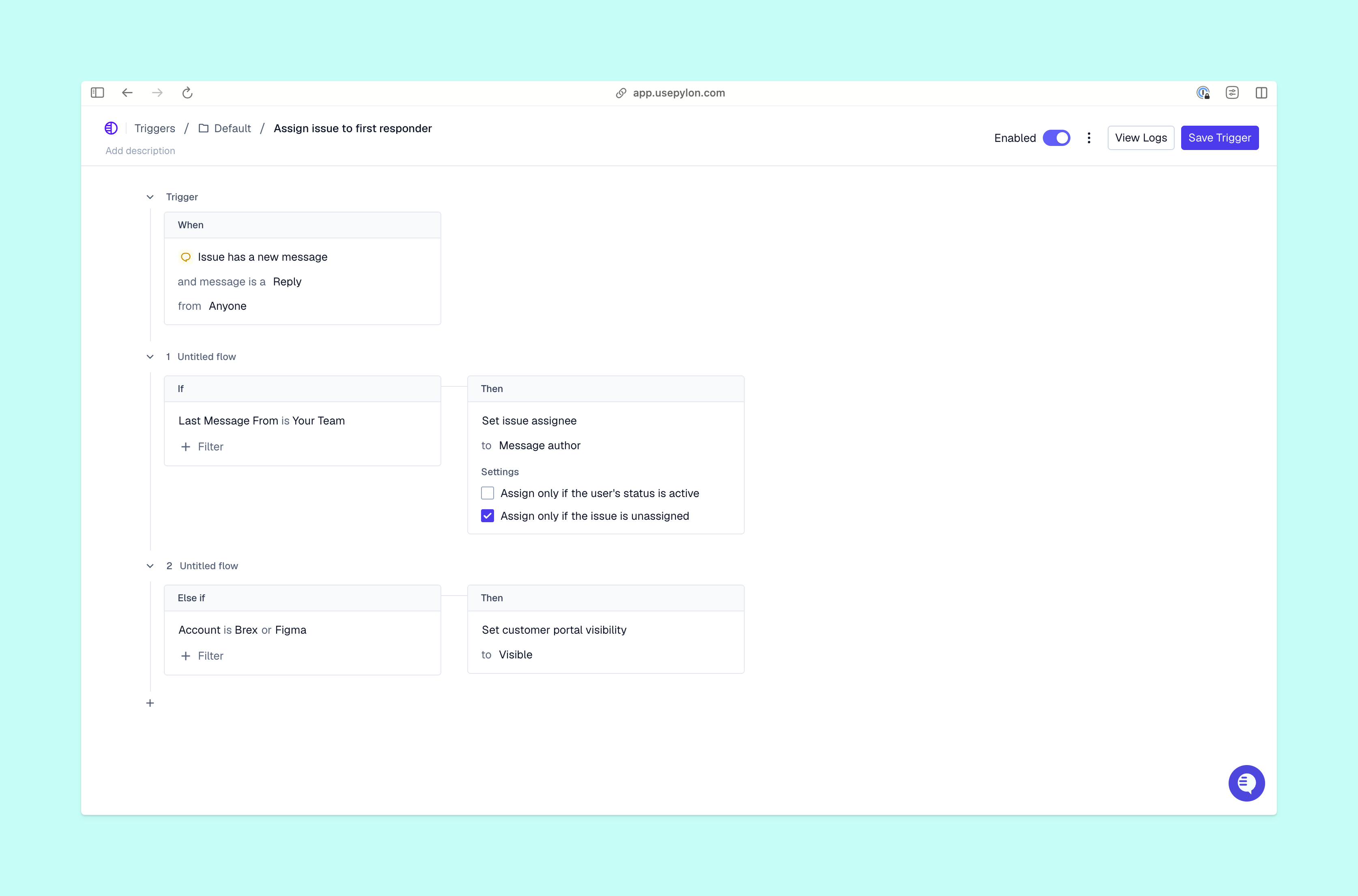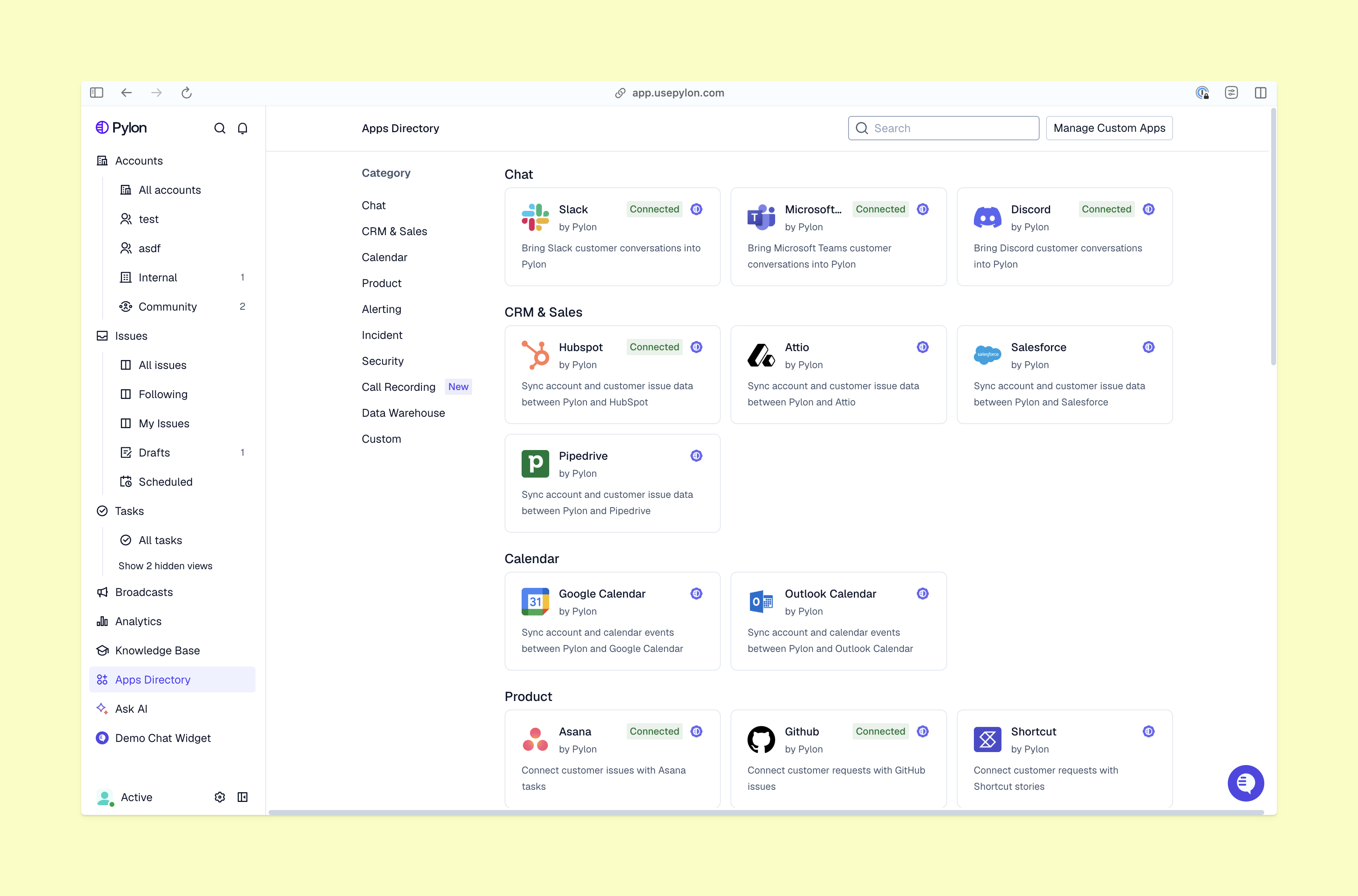Principles and Strategies for Effective Customer Support
Learn how effective customer support saves time and improves outcomes. Discover key principles and strategies to boost customer satisfaction and loyalty.
Building strong customer relationships doesn’t stop after you close a deal. In B2B environments, where contracts are long-term and stakes are high, effective customer support is one of the most valuable opportunities for maintaining those relationships.
When your company delivers dependable service, customers feel cared for, not just sold to. That trust encourages renewals and referrals, and it nurtures strong partnerships over time. Effective support also benefits your internal team, because it builds confidence and improves collaboration while keeping information fluid across departments.
Let’s talk about what great customer support looks like, why it matters, and how to improve the customer experience.
The Role of Customer Support in B2B Companies
Customer support includes any assistance a company provides after someone purchases a product or service. In a B2B context, this often involves onboarding for complex products, collaborating with multiple stakeholders, and working through long implementation cycles. Support teams guide customers through product adoption and issue resolution, making sure everything goes smoothly and expectations are met (or ideally, exceeded).
Support can happen in many ways:
- Through online chat or platforms like Slack, where your team helps customers in real time
- Via email or ticketing systems for structured issue tracking
- Over video calls for more complex technical discussions
- On self-service knowledge bases or with AI-powered responses
It’s important to offer customers multiple ways to contact you, but that can make your team’s work more challenging. Pylon keeps things organized with omnichannel support, bringing all your communication channels — like Slack, Teams, email, chat, and ticket forms — into a single workspace. That way, your team can respond quickly and maintain continuity no matter how each customer reaches out.
Why Quality Customer Support Matters
For B2B companies, customer relationships are long-term investments. Each interaction either strengthens or weakens that investment. When support is efficient and empathetic, you reassure customers that they made the right choice, and you set the stage for renewals or referrals.
Good customer support can lead to:
- Higher retention. Satisfied customers renew more often and expand their use of the product or service.
- Better reputation. Word-of-mouth carries weight in B2B communities, where buying decisions rely heavily on social proof.
- Stronger revenue. Consistent experiences lead to predictable growth.
On the other hand, poor communication and slow responses erode confidence,create frustration, and may even push customers toward competitors. Investing in quality support transforms those risks into opportunities to deepen relationships.
Principles of Effective B2B Customer Support
Great B2B customer support teams share the same foundational habits. These principles turn every interaction into a chance to show expertise and build trust.
Empathy
Empathy is the ability to see issues from the customer’s point of view. A single outage or delay can have major consequences for them:
- In SaaS, downtime might prevent customers from serving their own customers.
- In manufacturing, a supply-chain delay could halt production entirely.
- In financial services, a system error may affect sensitive transactions.
Recognizing those pressures and responding with the appropriate care shows that your company understands the customer’s business priorities and stakes.
Active Listening
Before offering a fix, listen carefully to your customer. They might reveal the real problem through a passing comment in the conversation: a workflow concern, a missing feature, or a lack of training.
A customer from a software company might report “slow performance,” when the issue is actually about poor configuration. In logistics, a customer’s complaint about tracking delays might reveal a data integration gap. Taking the time to understand context prevents repeat issues and leads to faster, more relevant solutions.
Clear Communication
Jargon often confuses people and delays progress. Great support teams use plain language without talking down to customers. For example, a cybersecurity vendor needs to explain incidents in language that both technical staff and executives can understand.
It's also important you take the time to confirm that customers understand and are updated throughout the support process. Even when an issue takes a while to solve, clear communication maintains trust.
Problem Solving
Effective customer support relies on both technical knowledge and creative thinking. B2B customers often have unique technical configurations or constraints, so the solutions you offer must be adaptable.
A hardware supplier might coordinate with product engineers to diagnose quality issues, while a cloud service provider might work with technical support teams to adjust their configuration. Support teams who can easily collaborate across departments and with outside partners are better able to resolve issues in a way that has lasting impact.
How to Deliver Quality B2B Customer Support: 7 Strategies
These seven customer care tips can help your team build stronger relationships and more efficient support systems.

1. Leverage AI
AI is transforming how customer support teams operate. Instead of replacing your team, this customer experience technology enhances their work by handling repetitive or time-sensitive tasks. AI can automatically categorize tickets, assign issues to specific team members, suggest relevant articles, and even draft responses based on previous fixes.
Your team can train Pylon’s AI Agents using your existing documentation and by creating runbooks for them to follow. Each AI agent learns from company knowledge to handle common questions, escalate complex issues, and log every interaction for full visibility. This allows your team to focus on strategic, high-impact conversations.
2. Show Empathy
In a fast-paced B2B environment, customers appreciate when teams acknowledge their frustration and communicate with respect. Simple phrases like “I understand how this affects your workflow” create connection and build goodwill.
Empathy doesn’t always require time, just listening and intention. Pausing to understand how an issue impacts the customer’s business helps you respond in a way that meets both technical and emotional needs.
3. Provide Support Quickly
The best support experiences balance speed with accuracy. Automated triage systems, knowledge bases, pre-built templates, and AI suggestions allow your team to respond fast without sacrificing quality.
By using internal documentation and shared playbooks, your support teams can quickly find answers that are accurate and consistent. Clear, structured information also shortens training times for new hires, keeping operations efficient as the company grows.
4. Be Proactive
Proactive support prevents problems before they escalate. Monitoring usage data and recurring ticket patterns can reveal early warning signs. For example, if several customers struggle with the same integration, your team can publish a guide or host a quick training session.
Proactive outreach also builds trust. When customers receive guidance before they ask for it, they’ll feel supported. This kind of service turns a business transaction into a partnership.
5. Personalize the Experience
No two customers use your product in exactly the same way. Personalized support acknowledges those differences. Referencing account details, usage patterns, and previous conversations makes customers feel understood and valued.
Pylon’s Account Intelligence makes it easy to deliver personalized support. By unifying customer context from all your support interactions, Pylon helps you keep track of account histories, product usage, past conversations, customer feedback, and more, all in one place. This helps your team fit every response to the customer’s unique context.
6. Prioritize Data Protection
In B2B customer support, trust and compliance are non-negotiable. Customers need to know that their information and their own customers’ data is secure. Protecting sensitive details through clear permissions, encryption, and secure ticket workflows makes all parties feel safer.
When security practices are embedded into every workflow, they become second nature instead of afterthoughts. Regular training also helps teams handle data responsibly.
7. Monitor Progress
To continue delivering quality support, you need to measure your progress and improve your workflows. Support metrics like average resolution times and customer satisfaction scores give you a snapshot of how your team is performing. And looking deeper into feedback patterns or escalations shows where you can improve important processes.
Your company can also integrate feedback into its digital customer experience strategy, connecting support data with product updates and marketing insights. By aligning these efforts, all teams can better understand how support drives outcomes.
With Analytics in Pylon, you can track key support metrics like issue volumes and resolution times. You can even create custom KPI dashboards and filter them based on categories like customer or issue type.
Supercharge Your Customer Support With Pylon
Great customer support is about solving problems, but it’s also about creating relationships that last. By combining empathy and personalization with AI and automation, your team can deliver high-quality support efficiently. In turn, this strengthens customer loyalty and drives sustainable growth.

Pylon is the modern B2B support platform that offers true omnichannel support across Slack, Teams, email, chat, ticket forms, and more. Our AI Agents and Assistants automate busywork and reduce response times. Plus, with Account Intelligence that unifies scattered customer signals to calculate health scores and identify churn risk, we're built for customer success at scale.











